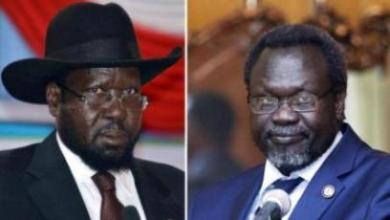Mixed reactions over South Sudan transitional period extension
September 15, 2024 (JUBA) – Leading South Sudanese academics and professionals have challenged the legality of extending South Sudan’s transitional period two more years, describing it as an unconstitutional and unilateral action to avert loss of legitimacy and constitutional crisis.
South Sudan’s parties to the September 2018 peace agreement extended the current transitional period, citing an opportunity to implement the remaining key provisions in the peace agreement.
But academics, including leading members of civil society organizations, argued that the extension undermines mechanisms and institutions established as a result of the 2018 peace agreement.
Luka Biong Kuol, the Director of the Institute of Peace, Development, and Security Studies at the University of Juba said the extension of the lifespan of the transitional government of national unity and its decision to postpone the elections initially scheduled for December 2024 lacked basis.
“The statement by the Minister of Cabinet Affairs that the R-ARCSS [Agreement on the Resolution of the Conflict in the Republic of South Sudan] has been extended by two years and that elections to be adjourned to December 2026 based on the consensus reached by the Presidency is not supported by the provisions of the R-ARCSS”, he argued.
In particular, Kuol stated, Article 8.4 of the R-ARCSS states that: “This Revitalized Agreement may be amended by the Parties, with at least two-thirds of the members of the Council of Ministers of the RTGoNU, and, at least two-thirds of the voting members of the Revitalized Joint Monitoring and Evaluation Commission (RJMEC) consenting to the amendment, followed by ratification by the Transitional National Legislature, according to the constitutional amendment procedures set out in the TCRSS, 2011 (as amended). There is no reference in this Article to the Presidency”.
“So, the R-ARCSS is not yet extended and elections are not yet adjourned unless approved by two-thirds of members of the Council of Ministers of the RTGONU, RJMEC, and the Transitional National Legislature by September 22, 2024. The members of the Council of Ministers of the RTGoNU, RJMEC, and Transitional National Legislature have a moral national responsibility and obligation to rescue this unpopular process that is utterly against the supreme will of the people of South Sudan by anchoring such extension to the Tumaini Initiative Peace Talks,” he stressed.
Jok Madut Jok, a Professor at the US-based Syracuse state university, said the decision to extend the lifespan of the coalition government and postpone elections to December 2026 was no surprise.
“We are not surprised one bit, that the South Sudan government under Kiir Mayar[dit], Michael Makuei and Martin Elia have “postponed” the elections and are now busy trying to convince us that this was a last-minute decision after running out of options. But this is a lie! They have been working on this plan for a good one year, always talking of elections to dupe us, but always knowing the country’s capacity to hold elections is wanting, legally, financially and logistically. They knew they could not hold elections in these circumstances, no money, no law, no security, no census, no constituency demarcation, and in the face of failure to implement the 2018 peace agreement”, wrote Jok in reaction to the announcement,” he explained.
Jok said in the past years, whoever questioned the country’s leadership on whether they were capable of holding elections or not was labeled anti-election or promoter of chaos in the country.
Wani Justin, another academic in South Sudan, described the recent extension of the lifespan of the transitional government of national unity as the extension of the suffering of the people
“They have extended it three times. First extension was 100 days of the pre-transitional period. What expected to be achieved in 100 days was not achieved and so the government was formed without meeting the prerequisites of the pre transitional period. Then they talked of roadmap to extend themselves for two years and now these two years. What is that they will do which could not do during the periods in which they extended themselves”? he asked.
The academic urged South Sudanese to out rightly reject the extension through a popular uprising.
“If this extension is not rejected and people come out to say it, it would become a norm because these people do not want elections to be conducted because they know they do not have trust and confidence of the people. They are representing themselves and do not care, leading the country into the drain and down with them, even if it disintegrates. They don’t care. They are not leaders and should be forced out instead of being allowed to hold people hostage at their whims”, he said.
While announcing the extension, South Sudan’s Presidential Adviser on National Security, Tut Gatluak said it provided an opportunity to implement the critical remaining protocols in R-ARCSS such as the permanent constitution process, census as well as the registration of political parties.
Separately, Cabinet Affairs minister, Martin Elia Lomuro said the transitional period extension was in response to the recommendations from both electoral institutions and the security sector.
He assured the public that the government would remain operational during this extended period.
South Sudan’s presidency, in a statement announced by the state-owned television (SSBC), emphasized that the remaining months of the current transitional period would be utilized to mobilize enough funds aimed at the effective implementation of the revitalized peace agreement.
This initiative, it further said, is crucial for achieving long-term peace and stability in the country.
(ST)

